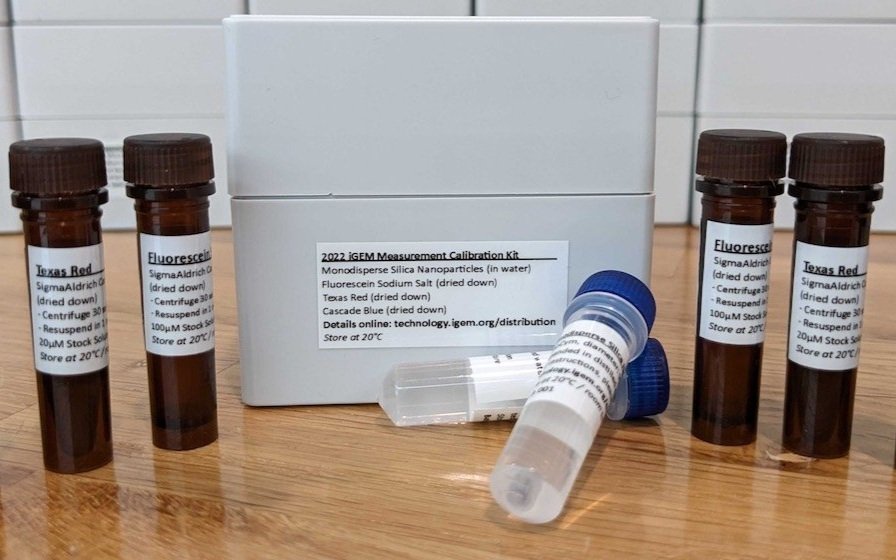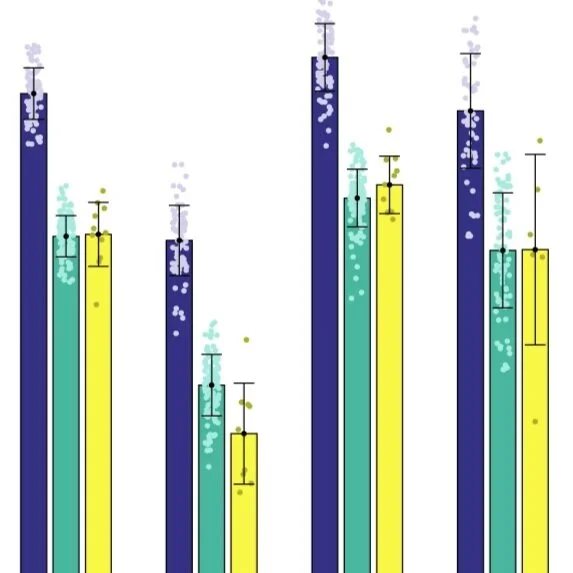Tackling measurement challenges in synthetic biology
by Sonja Billerbeck and Alejandro Vignoni
on behalf of the iGEM Engineering Committee
As the pioneering organization of synthetic biology, iGEM is a natural test-bed for new ideas and approaches in synthetic biology. One of the big challenges facing the field of synthetic biology is the ability to obtain reliable and repeatable measurements in different labs – a key component of all engineering disciplines. For example, fluorescence data usually cannot be compared across laboratories because they have been reported in different units or because different groups process data in different ways. This makes it hard to debug engineered biological constructs, build on existing measurements, effectively share data between labs, and even to just interpret experimental controls.
Over the past several years, iGEMers have been tackling this challenge through the International InterLaboratory (Interlab) Measurement Studies. Previous Interlab studies have focused on developing a robust measurement procedure for green fluorescent proteins and cell density (OD600) by quantifying the bacterial fluorescence and cell number using independent calibrants.
This year, all iGEM 2022 teams are invited to sign up for the 6th Interlab study, where we will extend measurement procedures from one-color calibrations (green) to multi-color calibrations (green-red-blue).
Sign up for the 6th Interlab study
Sign up before July 28 (data submission deadline)
This study is an optional activity for competition participants, but a great opportunity for lab training for the team. To participate, you will need to do a set of transformations, culture bacterial cells, and measure cells and calibrants in a fluorescent plate reader.
We offer three different experiments and depending on the experiment the study can be expected to take 1 to 3 people about 1 to 6 hours (including waiting time) a day across the course of 1 week. All teams will receive a measurement calibration kit in their 2022 iGEM Distribution Kit for the study and the experiments are outlined here.
Fluorescence data usually cannot be compared across laboratories because they have been reported in different units or because different groups process data in different ways. This makes it hard to debug engineered biological constructs, build on existing measurements, effectively share data between labs, and even to just interpret experimental controls.
Participation in the study will train your team in basic lab techniques that will help prepare you for your project lab work. You will not only gain skills and build excitement for the iGEM Competition, your data could be included in peer-reviewed scientific publications.
Check out these publications from previous Interlab studies:
Reproducibility of Fluorescent Expression from Engineered Biological Constructs in E. coli, PLoS ONE. 2016; 11(3): e0150182.
This is the first large-scale interlaboratory study carried out in synthetic biology, as part of the 2014 and 2015 iGEM Competitions. Participants at 88 institutions around the world measured fluorescence from three engineered constitutive constructs in E. coli. Results show that high quantitative precision and reproducibility of results is possible, while at the same time indicating areas needing improved laboratory practices.
Quantification of bacterial fluorescence using independent calibrants, PLoS ONE. 2018; 13(6): e0199432.
This interlaboratory study demonstrated the critical importance of using independent calibrants in the measurement of cellular fluorescence. Participants in the 2016 iGEM Competition from 92 institutions around the world measured fluorescence using simple, low-cost unit calibration protocols. The degree of precision achieved in this study indicates that cheap and readily accessible independent calibrants can enable measurement of sufficient precision to support a much greater degree of replication, sharing, and composition than is currently practiced in the engineering of biological organisms.
Robust estimation of bacterial cell count from optical density. Commun Biol. 2020; 3, 512.
This interlaboratory study compared three simple, low-cost, and highly accessible optical density (OD) calibration protocols across 244 laboratories participating in the iGEM Competition. Results show that serial dilution of silica microspheres is by far the best of these three protocols under the conditions tested, allowing highly precise, accurate, and robust calibration that is easily assessed for quality control and can also evaluate the effective linear range of an instrument. As long as OD measurements are within the linear range, this calibration protocol is expected to enable effective use of OD data for estimation of actual cell count, comparison of plate reader measurements with single-cell measurements such as flow cytometry, improved replicability, and better cross-laboratory comparison of data.
Comparative analysis of three studies measuring fluorescence from engineered bacterial genetic constructs. PLoS ONE. 2021; 16(6): e0252263.
This comparative analysis comprises three large interlaboratory studies carried out as part of the iGEM Competition, using flow cytometry and plate readers, identical genetic constructs, and compatible unit calibration protocols. Based on findings from this study, authors made recommendations that will support a transformation in measurement culture and corresponding increase in reproducibility and reliability of results across a wide range of biological scientific and engineering applications.
We’re excited for iGEM 2022 teams to help in developing a robust measurement procedure for multi-color calibrations (green-red-blue) by participating in the 6th Interlab.
Be sure to sign up for 6th Interlab study here before July 28!
Cover photo by Diana Polekhina on Unsplash













